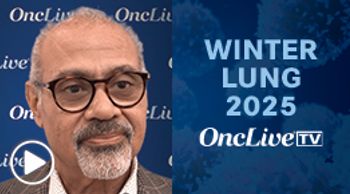
Tarek Mekhail, MD, MSc, FRCSI, FRCSEd, discusses a case study of a patient with early-stage, nonmetastatic lung adenocarcinoma.

Your AI-Trained Oncology Knowledge Connection!


Tarek Mekhail, MD, MSc, FRCSI, FRCSEd, discusses a case study of a patient with early-stage, nonmetastatic lung adenocarcinoma.

Benjamin P. Levy, MD, discusses the current clinical and developmental statuses of several ADCs for patients with non–small cell lung cancer.

Misty Shields, MD, PhD, provides a comprehensive overview of key updates in. the management of limited-stage small cell lung cancer.

Russell Hales, MD, discusses clinical data that challenge the use of post-operative radiotherapy in patients with non–small cell lung cancer.
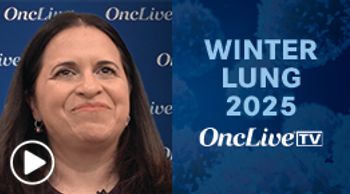
Estelamari Rodriguez, MD, MPH, discusses a case study of a patient with non–small cell lung cancer harboring an EGFR L858R mutation and a TP53 mutation.

Melissa L. Johnson, MD, discusses the evolution of immunotherapy approaches beyond PD-1 inhibition in lung cancer.

Walter J. Curran, MD, discusses the evolving use of radiotherapy in small cell cancer and data supporting its optimal use.
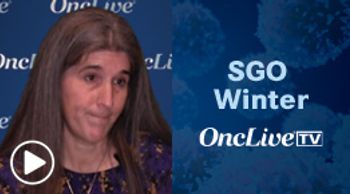
Kathleen N. Moore, MD, MS, discusses the relationship between biomarker expression and efficacy with antibody-drug conjugates in ovarian cancer.
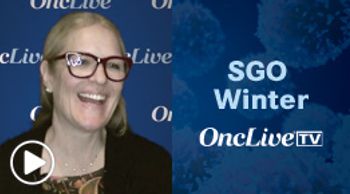
Dana M. Chase, MD, discusses the importance of quality of life and patient-reported outcome measures in gynecologic oncology.
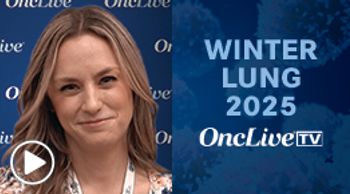
Misty D. Shields, MD, PhD, discusses the implications of the ADRIATIC trial of adjuvant therapy with durvalumab vs placebo in patients with LS-SCLC.
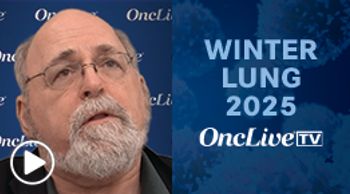
Corey J. Langer, MD, discusses how the use of adjuvant immunotherapy has affected the resectable NSCLC treatment paradigm.

A retrospective analysis showed a high proportion of endometrial cancer samples expressed FRα or B7-H4.

Kathleen Moore, MD, MD, FASCO, discusses the development of antibody-drug conjugates in ovarian cancer and how they could shift the field.
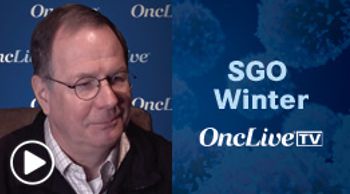
R. Wendel Naumann, MD, discusses next-generation antibody-drug conjugates in ovarian cancer.
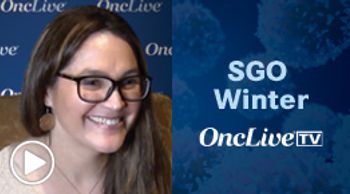
Stéphanie Lheureux, MD, PhD, discusses the evolution of antibody-drug conjugates since mirvetuximab soravtansine in ovarian cancer.

Cisplatin/paclitaxel showed trend towards improved DFS vs cisplatin alone in advanced-stage ovarian cancer.

Postoperative outcomes may be worse among patients with gynecologic cancers who are elderly or frail.

OS outcomes with lenvatinib plus pembrolizumab were prolonged in patients with PPP2R1A-mutated vs wild-type high-risk endometrial cancer.

High-grade disease was associated with worse survival outcomes in Black patients with uterine carcinoma.
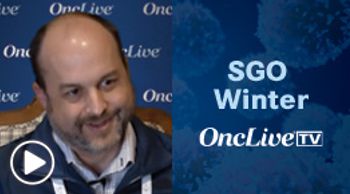
R. Tyler Hillman, MD, PhD, discusses ways of identifying new drug therapy candidates in patients with adult-type granulosa cell tumor of the ovary.
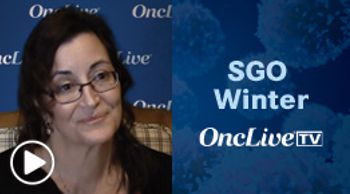
Angeles Alvarez Secord, MD, MHSc, discusses findings from the consensus report published by the National Academies of Sciences, Engineering, and Medicine committee.
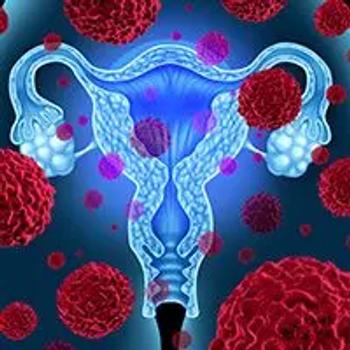
The addition of chemotherapy to radiation therapy following surgery conferred a benefit in certain endometrial cancer molecular subtypes.

An observational cohort study determined that discordance exists between p53 protein expression and TP53 mutation status in high-risk endometrial cancer.

T-DM1 was found to be tolerable, but progression-free survival was not improved vs historical data in HER2-positive biliary tract cancer.

Overall survival data were linked with baseline geriatric assessment and QOL scores in patients with metastatic pancreatic ductal adenocarcinoma.

The combination of bezuclastinib and sunitinib generated favorable efficacy outcomes vs historical data in patients with previously treated GIST.

Detectable ctDNA after neoadjuvant chemotherapy was associated with the recommendation for TME in patients with T1-3, N0 low or mid rectal cancer.

A longer-term follow-up analysis showed that adagrasib/cetuximab demonstrated clinically meaningful efficacy in KRAS G12C–mutated advanced CRC.

Updated phase 2 data revealed fruquintinib plus TAS-102 could offer survival benefits in pretreated metastatic colorectal cancer.
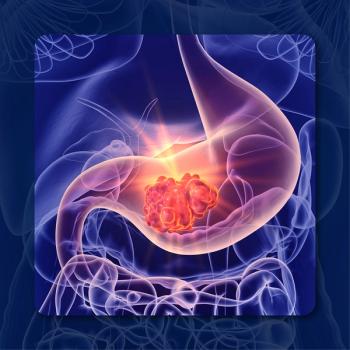
A recap of the top data presented at the 2025 Gastrointestinal Cancers Symposium.